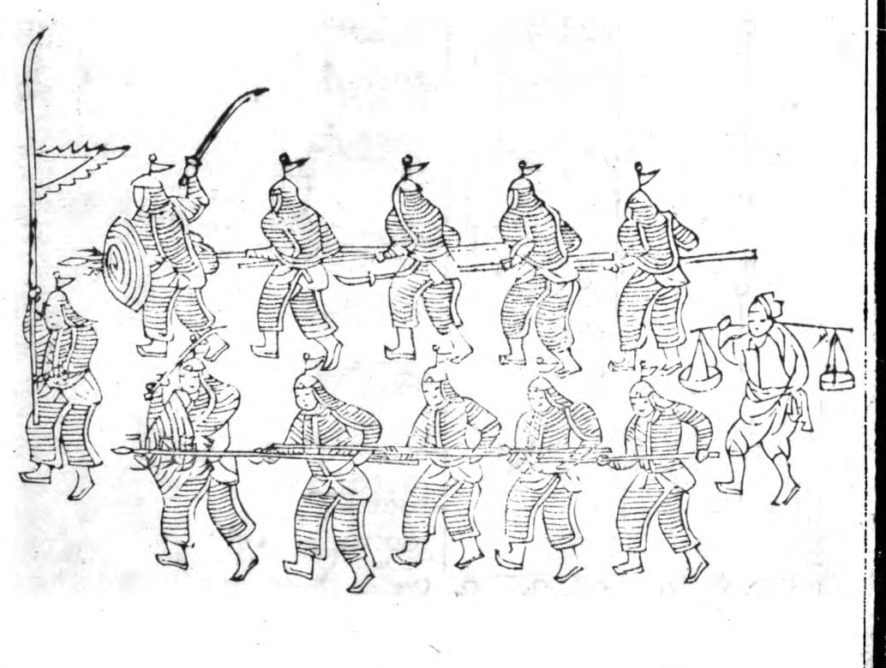
- This event has passed.
The 14th Göttingen East Asia Research Salon
June 2019 @ 16:00 - 18:00
Event Navigation

The 14th Göttingen East Asia Research Salon:
Measuring Reliability in the Wartime Transport of Provisions: The Case of Mao Yuanyi (1594-1641)
Presenter: Masato Hasegawa (Max Planck Institute for the History of Science)
Commentators: Dr. Charlotte Backerra, Dr. Julia Schneider
Time: Tuesday, 11.06.2019, 4 pm (c.t.) – 6 pm
Venue: VG 2.101, University of Göttingen
Abstract
This paper examines the notion of efficiency and reliability in the wartime transport of provisions during the late Ming period. Primarily drawing on writings of Mao Yuanyi (1594-1641), one of the most prolific writers of the period on military matters, this study assesses how technologies, animals, and human labor enabled the overland transport of military provisions in late Ming society. A military strategist and advisor, Mao participated in the Ming defense effort against the Jurchen troops in Liaodong in the early seventeenth century. In his seminal study on the conduct of war, The Record of Military Preparedness (Wubeizhi), he extensively discussed the costs and benefits of the transport methods that were available at the time, including wooden carts, pack animals, and water transport. Among the various methods considered in The Record of Military Preparedness, Mao clearly favored what he called “human transport” (renyun), which exclusively relied on the labor of human bearers. By analyzing his writings on the transport of provisions and his forceful argument in favor of employing human labor, this study not only illuminates the manner in which consideration over the duration and speed of transport entailed an appraisal of reliability over the long term. It also reveals how local communities in the Liaodong region became intricately involved in the planning and implementation of war in the late Ming period.
For an essay draft please contact us (assist@cemeas.uni-goettingen.de).
Short Bio
Masato Hasegawa received his PhD in History from Yale University in 2013 and previously taught Chinese, Korean, and East Asian history at the University of Oregon, Columbia University, and New York University. His research centers on the question of how individual lives intersected larger historical changes in borderlands in early modern East Asia. His dissertation, “Provisions and Profits in a Wartime Borderland: Supply Lines and Society in the Border Region between China and Korea, 1592–1644,” examined the impact of cross-border wars on local society in the Chinese-Korean borderland during China’s political transition from the Ming to the Qing dynasty. Focusing on the wartime procurement and transport of provisions across the Chinese-Korean borders, it analyzed the manner in which the logistics of cross-border military campaigns profoundly affected and disrupted the lives of individuals and the region’s agricultural cycle. He is currently revising his dissertation for publication and preparing a new project on the notion of reliability in connection with technologies, animals, and seasonality in the Sino-Korean borderland of the early seventeenth century.
Source: https://www.mpiwg-berlin.mpg.de/users/mhasegawa
Image: Qi Jiguang 戚繼光 (1528-1588), Lianbing shiji zaji 練兵實紀雜集 [Miscellaneous notes concerning military training], fascicle 6, leaf 22.
